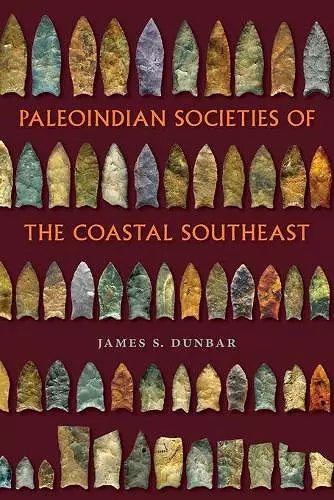Paleoindian Societies of the Coastal Southeast
Format:Paperback
Publisher:University Press of Florida
Published:31st Oct '19
Should be back in stock very soon

The late Pleistocene-early Holocene landscape hosted more species and greater numbers of them in the Southeast compared to any other region in North America at that time. Yet James Dunbar posits that a misguided reliance on using Old World origins to validate New World evidence has stalled research in this area. Rejecting the one-size-fits-all approach to Pleistocene archaeological sites, Dunbar analyzes five areas of contextual data―stratigraphy; chronology; paleoclimate; the combined consideration of habitat, resource availability, and subsistence; and artifacts and technology―to resolve unanswered questions surrounding the Paleoindian occupation of the Americas.
Through his extensive research, Dunbar demonstrates a masterful understanding of the lifeways of the region’s people and the animals they hunted, showing that the geography and diversity of food sources was unique to that period. He suggests that the most important archaeological and paleontological resources in the Americas still remain undiscovered in Florida’s karst river basins. Building a case for the wealth of information yet to be unearthed, he provides a fresh perspective on the distant past and an original way of thinking about early life on the land mass we call Florida.
A volume in the Florida Museum of Natural History: Ripley P. Bullen Series
A readable and welcome compendium to the scholarship of the Paleoindian period in the United States."—American Antiquity"A masterful review of Paleoindian archaeology of Florida. . . . [And] a landmark synthesis of the remarkable archaeological record of a key region in North America."—Journal of Anthropological Research
ISBN: 9780813068008
Dimensions: unknown
Weight: 515g
344 pages